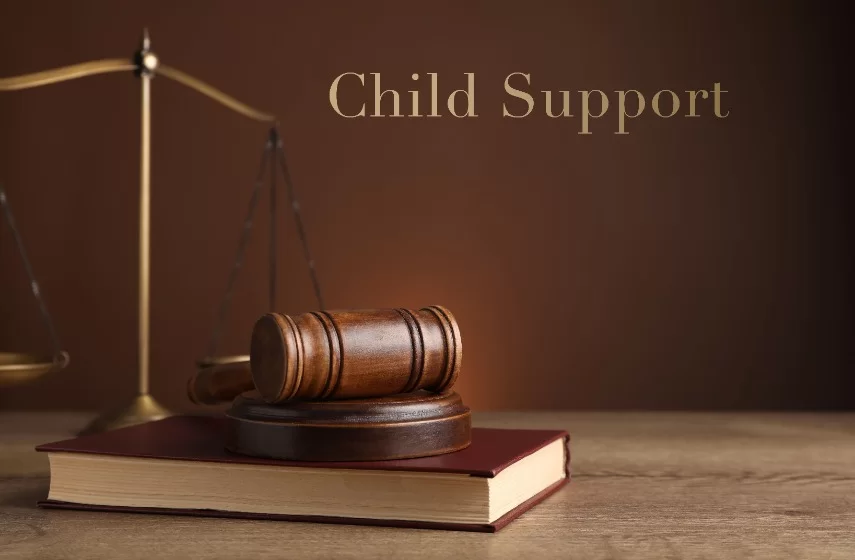Enforcing a child support order in Massachusetts means taking legal steps when one parent isn’t meeting their financial obligations. These court-ordered payments aren’t optional, and when they go unpaid, the system provides powerful tools to help custodial parents recover what’s owed. From wage garnishments and tax refund interceptions to license suspensions and contempt proceedings, enforcement actions are designed to ensure children receive the support they’re entitled to.
Child support isn’t just a guideline; it’s a legal duty backed by the courts. Whether dealing with late payments, partial payments or no payments, knowing your rights and options can make the process less overwhelming. The Massachusetts Department of Revenue (DOR) Child Support Enforcement Division plays a vital role in this, helping parents enforce support orders without needing to do it alone.
In this guide, you’ll learn how child support enforcement works in Massachusetts, what actions the court and DOR can take, and what to expect if you’re either seeking enforcement or responding to it.

Who Can Enforce a Child Support Order in Massachusetts?
ABoth the custodial parent and the Massachusetts Department of Revenue (DOR) can act to enforce a child support order. When payments are missed or incomplete, the recipient can initiate enforcement through the court or request assistance from the DOR’s Child Support Enforcement Division.
The DOR uses administrative tools such as wage garnishment, tax refund interception, bank account seizure, and license suspension. If the case involves disputed arrears or allegations of intentional nonpayment, enforcement typically moves to the Probate and Family Court. There, the process involves filing a complaint for contempt and attending a hearing, where a judge can order repayment, impose penalties, or issue a capias for failure to appear.
Enforcement through the Department of Revenue (DOR)
The DOR/CSS works through its enforcement division to collect child support on behalf of the custodial parent. In many cases, no new court hearing is needed before the DOR enforces support.
Once a case is active with the agency, a case manager initiates action using administrative tools like income withholding, tax refund intercepts, and bank levies to recover unpaid support. These methods are often faster and more efficient than filing directly through the court, especially for routine nonpayment cases.

Filing a Complaint for Contempt in Family Court
When the DOR isn’t actively managing a case or administrative efforts have failed, a parent files complaint directly in the Probate and Family Court using the CJD-103 form, officially known as a contempt complaint. This route is typically used when the paying parent has willfully disobeyed a court order.
After the complaint is filed, the judge schedules hearing where both parties must appear. If the court finds the violation intentional, consequences can include repayment orders, fines, or even jail time. Filing a contempt action also creates a formal court record, which can be important if repeated violations occur. A family law attorney can help prepare the complaint, gather evidence, and advocate for enforcement during the hearing.
What Enforcement Tools are Available for Unpaid Support?
Massachusetts enforces unpaid child support using legal and administrative tools that help collect overdue payments and hold nonpaying parents accountable. These methods vary depending on whether the Department of Revenue or the court is managing the case.
Common enforcement tools include:
- Wage garnishment. Payments are taken directly from a parent’s paycheck.
- Tax refund interception. Federal and state refunds are redirected to cover child support debt.
- Bank levies. Money is withdrawn from checking or savings accounts.
- Property liens. A legal claim is placed on real estate or personal assets.
- Credit reporting. Missed payments are reported to credit bureaus.
When support continues to go unpaid, enforcement can escalate.
- License suspension. This includes driver’s licenses, professional licenses, and even fishing or hunting permits.
- Capias warrant. A judge may issue an arrest warrant if a parent fails to appear in court.
- Jail time. In severe cases, the court can order incarceration for willful nonpayment.
The more support that goes unpaid, the more severe the consequences become.
Wage garnishment and income withholding
Wage garnishment is the most commonly used method for collecting child support in Massachusetts, and it starts when the DOR withholds income directly from a parent’s paycheck. Once a support order is in place, the employer complies with the notice and sends the payment to the state.
By law, employers must follow these orders, and under federal rules, no more than 25% of a parent’s weekly disposable income can be withheld. This process helps keep payments regular and removes the need for constant follow-up or court intervention.
Property liens, bank levies, and tax refund interceptions
When support goes unpaid, the agency seizes assets to recover what’s owed, and the collected support applies to arrears. Both the DOR and the court can place a property lien on homes, vehicles, or other valuable assets. They can also initiate a bank levy, freezing and withdrawing funds directly from personal accounts.
For federal and state tax returns, an IRS intercept allows refunds to be redirected toward unpaid child support. These actions are more likely in cases involving large balances or long-standing nonpayment, and they often happen without a court hearing.
License suspension and passport restrictions
When arrears exceed certain thresholds, license suspension becomes a powerful enforcement tool. The DOR notifies RMV, triggering suspension of the parent’s driver’s license or any active professional license until payments are brought up to date. These actions can severely limit employment and mobility, creating added pressure to resolve the debt.
For international travel, the Department of State may refuse to issue or renew a passport when past-due support exceeds $2,500. In those cases, a federal agency denies renewal until the balance is paid or a payment plan is in place.
For more details on how enforcement works and what options may apply to your case, the Massachusetts DOR provides a child support in Massachusetts guide with helpful information for parents.
How Interest and Penalties Apply to Child Support Arrears
TIn Massachusetts, interest and penalties begin accruing automatically on past-due child support when the balance exceeds $500 and a minimum payment hasn’t been made each month. The Department of Revenue charges interest at 0.5% per month and applies a 0.5% monthly penalty, both calculated on the outstanding principal owed.
These charges are assessed on the last day of each month and continue accumulating until the full amount is paid or a qualifying payment plan is in place. The longer arrears remain unpaid, the more financial pressure builds, so staying current or arranging a payment plan early can prevent significant added costs.
Monthly interest and penalty accumulation
Once arrears reach over $500, interest accrues at 0.5% per month on the unpaid balance. If no minimum payment is made during that month, a 0.5% penalty applies in addition to the interest. These charges continue to build until the debt is resolved.
Both interest and penalty apply whether the case is handled by the Department of Revenue or governed by a court-issued order, which makes it essential to stay current or address missed payments quickly.
Who qualifies for exemption or waiver
Not every parent is subject to interest and penalties. Some may qualify for an exemption, especially those receiving public benefits like Supplemental Security Income (SSI). In these cases, the parent files review to request relief based on financial hardship or eligibility criteria.
During a formal review process, the DOR suspends penalty temporarily while evaluating the request. In limited cases, the state may approve an equitable adjustment, reducing or waiving charges that would otherwise continue to accrue.
Each request is considered on a case-by-case basis, and approval is not guaranteed. Supporting documents such as benefit verification or income statements may be required to complete the review.
What Happens at a Child Support Contempt Hearing?
A child support contempt hearing is where the court decides if a parent intentionally failed to follow a valid child support order. The judge reviews whether the nonpayment was willful and whether the parent could pay but chose not to.
The parent must appear in court and may need to provide documents such as pay stubs, tax returns, or proof of unemployment. The judge can issue penalties if they find the parent in contempt. These may include a repayment schedule, fines, license suspension, or, in serious cases, jail time.
The hearing is formal. Both parents may testify, and the judge may ask direct questions about income, expenses, and efforts to stay current. Legal representation is not required, but it can help protect your rights and improve the outcome.
Timeline from filing to court date
- The process begins when a parent testifies by filing a contempt motion using form CJD-103.
- The other party must be formally notified through service of process.
- Once service is complete, the court schedules hearing and assigns a docket number to the case.
- The hearing is typically set a few weeks later and is where the judge decides whether the child support order was violated.
Jail time is coercive, not punitive
In Massachusetts, incarceration for unpaid child support is a last resort and applies only in cases of civil contempt. The goal is not to punish, but to pressure the parent to comply. When a judge holds parent in contempt, the parent may be jailed temporarily, but release is typically granted once the parent pays to avoid jail by making a lump sum or agreeing to terms.
Before ordering jail time, the court may instead issue a payment order or set up a structured repayment plan. If a parent’s financial situation has changed, they may be eligible to modify the child support order rather than risk further enforcement.

What Happens After a DOR Annual Delinquency Notice?
A DOR Annual Delinquency Notice informs the parent of the total child support arrears, along with any interest and penalty charges that have accrued. It serves as both a statement of debt and a warning. If the balance isn’t addressed, the Department of Revenue may move forward with enforcement actions such as wage garnishment, tax refund intercepts, or license suspension.
The notice also outlines options to pay, dispute the balance, or request a formal review. If the parent disagrees with the amount or cannot afford to pay, they can contact the DOR to negotiate or set up a payment plan. In some cases, modifying the underlying support order may be necessary to prevent ongoing delinquency and additional consequences.
Requesting administrative review
After receiving the Annual Notice of Delinquency, a parent disputes balance by submitting a written request for administrative review within 30 days. This process allows the parent to challenge the amount owed, especially if payments were made but not credited or if the balance appears inaccurate.
Once the request is filed, the DOR pauses action temporarily while the review is conducted. During this time, most enforcement measures are suspended. If an error is found, the balance may be adjusted before enforcement resumes.
Judicial review and equitable adjustment
If a parent disagrees with the outcome of an administrative review, the next step is to request a judicial review through the Probate and Family Court. In this process, the court reviews evidence related to the debt, payment history, and financial hardship.
A parent seeks waiver by requesting equitable relief, but this is limited. Arrears adjustment through equitable relief is only available when the unpaid support is tied to periods when the child was receiving state-funded public assistance. Private arrears owed directly to the other parent cannot be waived under this process.
Risks of Ignoring Enforcement or Acting Too Late
- Enforcement actions can escalate quickly, starting with wage garnishment and ending in license suspension or jail.
- Interest and penalties continue to grow every month until the balance is paid or resolved.
- Unpaid arrears may trigger credit reporting, property liens, or tax refund interception.
- Failure to respond to a contempt complaint can result in a default judgment or arrest warrant.
- Missed opportunities to modify the order early can lead to unmanageable debt later.
- Delaying action reduces your ability to dispute errors, negotiate repayment, or request relief.
Civil arrest warrants and default judgments
If a parent fails to appear at a contempt hearing, the court issues capias, which is a civil arrest warrant that may lead to the parent being taken into custody. In addition to the risk of detention, the court can enter a default judgment that increases the total arrears, authorizes seizure of assets, and limits the parent’s ability to contest the outcome. When a parent is detained, even temporarily, it can cause disruptions to employment and housing. Responding to enforcement notices promptly is the best way to avoid escalating consequences.
Credit and passport damage
Unpaid child support can appear on a credit report, damaging a parent’s credit score and affecting future loans or housing applications. When arrears reach federally set limits, the DOR notifies agency through the FPLS, and the support blocks passport by triggering denial or revocation through the Department of State. Even if a parent is unemployed, the obligation remains active unless modified by the court, and failure to act can still result in enforcement.
Why You Should Work with an Attorney to Enforce Child Support
Working with a family law attorney gives you the legal support and strategy needed to enforce a child support order efficiently. An attorney can file motions, gather financial evidence, communicate with the DOR, and represent you in court if needed. They’re especially helpful in complex situations involving disputed payments, self-employment, or interstate enforcement. Legal guidance reduces delays, avoids costly errors, and helps you secure the support your child is legally entitled to.
Legal strategy, timing, and representation
A skilled attorney can guide the strategy and timing of your child support case, whether you’re pursuing a DOR review, a contempt action, or enforcing an existing enforcement order. With proper legal representation, your attorney files motion on your behalf and ensures deadlines, documentation, and procedures are handled correctly. During hearings, your lawyer argues for payment based on the facts of the case and applicable law.
Michelle Murray represents both custodial and noncustodial parents in Worcester County and can help you navigate the legal process with clarity and confidence.

Michelle Murray has devoted her practice exclusively to family law matters, focusing her efforts on assisting clients through divorce, custody, property division, child support, spousal support, and visitation issues throughout Worcester County.
